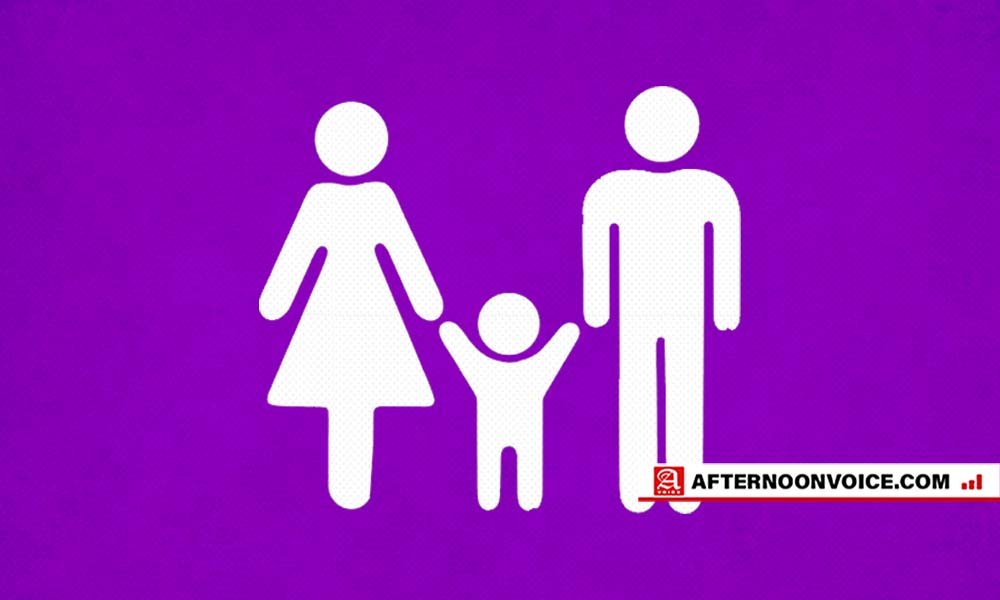
Divorce is certainly not a happy event, everyone suffers, it does depend on the reason for the divorce, how the adults handle it and who gets nailed the worst in the settlement. However, the divorce is the adults’ fault. Whatever they suffer due to divorce, they share fault in it. The children are always the innocent victims and therefore I have to say that they suffer the most simply because they have no control over what is happening to their lives and because too often, they are trapped between two supposed adults who insist on using them as weapons against one another, pawns in angry adult games.
Children generally dislike change, they hate moving from their table families. They hate people leaving. They don’t like routines overturned. They don’t like having to get used to new people, especially when their mother marries a new man. A perfect childhood would be one where the adults in their lives are totally reliable and predictable. Grownups shouldn’t be boring and add no drama, turmoil, or uncertainty. Kids like to feel safe and secure. They don’t want to worry about what’s going on, about whether they are loved, about fighting, about money, about being used as pawns. Now think about divorce. Not only is it scary, but it upends everything.
Also read: Divorce in India: Children are the biggest sufferers – Part 1
The adults suffering from divorce are of their own choice but the children suffering are beyond their control. Not only is their life falling apart but they tend to blame themselves (for no reason) and the emotional and psychological suffering can be intense and often made worse by backbiting, manipulative adults. Divorce, in all circumstances, rips a child apart, emotionally, and sensitively offensive upon the child’s well-being. A major impact of divorce is on the parent-child relationship. Especially when the parent who has the privilege of custody, hammers the child’s mind how awful another one was, the child remains mute spectator because they hardly have any voice after losing one parent, they don’t want to bargain with the one in their presence with them. They just sulk and here they develop hate, anger and rejection resulting in invisible stress.
In celebrity divorce cases we see, children often meet their mother or father. Hrithik Roshan to Malaika Arora Khan there are thousands of examples, where parents are separated but for the sake of children, they both are available. Such children definitely grow with emotional security and feel protected. They have their mother and father at equal distance from them. In middle-class families the scenario is totally different, the children are conditioned to hate, they are overburdened with sad sagas of life and the so-called sufferings of the parents who possess them.
The quantity and quality of contact between children and non-custodial parents usually fathers-tend to decrease and the relationship with the custodial parent-usually the mother shows signs of rigidity. There are also consequences of being the non-custodial parent, such as not being able to take the child out without the Court’s permission. The basic conflict in social principles in a custody case is whether to treat the child as a separated individual, apart from his/her blood ties or to emphasize the family unit from the position of the parent.
And finally, the time comes, when the children are grown beyond the custodial age, they refuse to accept the father just because they want to avoid confrontations. Divorce is an extremely disturbing experience for all children depending upon the age or maturity level. Divorce is inarguably intensely distressing for children. Outside the territory of family, because of the label of divorce, the child faces a tough time attempting to be accepted by a narrow-minded society. In socioeconomic attainments, children who experience their parents’ divorce have lower educational prospects than children from intact homes.
Within the family, the obvious effects are on the physiological behaviour of the child. Many times, they isolate themselves from the world around them. In older age group children, the assumption of hyper-maturity is very common as children often assume the tasks of adults to calm the custodial parent’s household. The law cannot prevent all damage to the child’s interests caused by divorce, since it cannot compel harmonious human relationships. It can, however, provide a means for reducing the damage by ensuring that the child’s interests are not neglected in divorce proceedings. There is a need to ensure that the child receives a stable and cherishing environment after the divorce of the parents, of course, the law gives a say to the child, but they don’t have control over the background traps laid for the child by the parents who want absolute custody.
Any suggestions, comments or disputes with regards to this article send us at feedback@www.afternoonvoice.com

